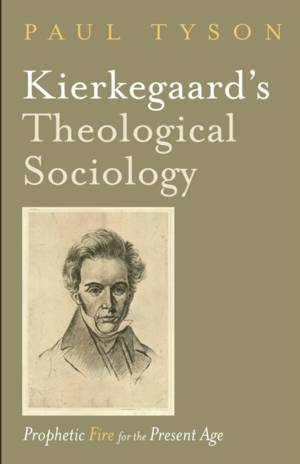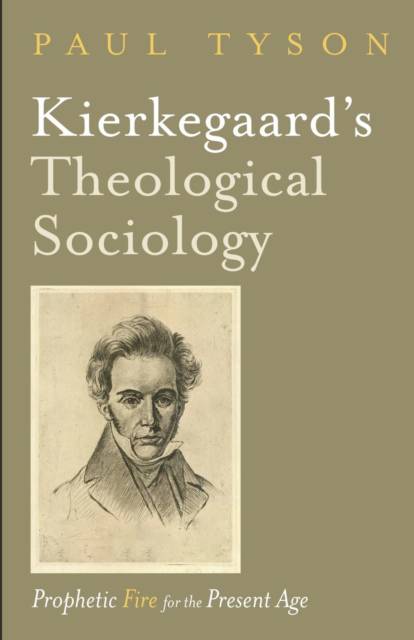
- Afhalen na 1 uur in een winkel met voorraad
- Gratis thuislevering in België vanaf € 30
- Ruim aanbod met 7 miljoen producten
- Afhalen na 1 uur in een winkel met voorraad
- Gratis thuislevering in België vanaf € 30
- Ruim aanbod met 7 miljoen producten
Zoeken
Kierkegaard's Theological Sociology
Prophetic Fire for the Present Age
Paul Tyson
Paperback | Engels
€ 30,95
+ 61 punten
Uitvoering
Omschrijving
Kierkegaard developed a distinctive type of sociology in the 1840s--a theological sociology. Looking at society through the lens of analysis categories such as worship, sin, and faith, Kierkegaard developed a profoundly insightful way of understanding how, for example, the modern mass media works. He gets right inside the urban world of Golden Age Denmark, and its religion, and analyses "the present age" of consumption, comfort, competition, distraction, and image-construction with astonishing depth. To Kierkegaard worship centers all individuals and all societies; hence his sociology is doxological. This book argues that we also live in the present age Kierkegaard described, and our way of life can be understood much better through Kierkegaard's lens than through the methodologically materialist categories of classical sociology. As social theory itself has moved beyond classical sociology, the social sciences are increasingly open to post-methodologically-atheist approaches to understanding what it means to be human beings living in social contexts. The time is right to recover the theological resources of Christian faith in understanding the social world we live in. The time has come to pick up where Kierkegaard left off, and to start working towards a prophetic doxological sociology for our times.
Specificaties
Betrokkenen
- Auteur(s):
- Uitgeverij:
Inhoud
- Aantal bladzijden:
- 148
- Taal:
- Engels
Eigenschappen
- Productcode (EAN):
- 9781532648250
- Verschijningsdatum:
- 29/03/2019
- Uitvoering:
- Paperback
- Formaat:
- Trade paperback (VS)
- Afmetingen:
- 140 mm x 216 mm
- Gewicht:
- 195 g

Alleen bij Standaard Boekhandel
+ 61 punten op je klantenkaart van Standaard Boekhandel
Beoordelingen
We publiceren alleen reviews die voldoen aan de voorwaarden voor reviews. Bekijk onze voorwaarden voor reviews.











